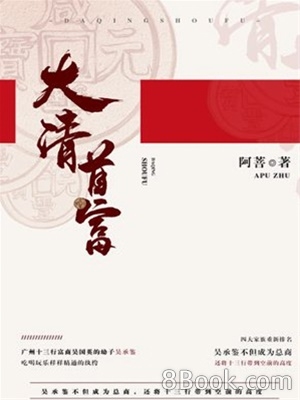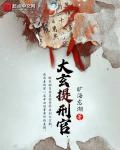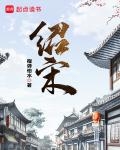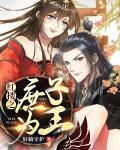Chapter 216: The End of an Era (VI)
During a break in the meeting, Gao Pang stopped Huo Chong who had just returned from the toilet and said, "Sir, if we do this, wouldn't it be clear that we are making enemies of the gentry?"
While washing his hands, Huo Chong said to Gao Pang, "Your suggestion is correct. I hope you can explain it clearly to those comrades who are full of killing intent at the meeting."
"Sir, if it worked, I wouldn't have come to you!" Gao Pang also became excited.
After shaking off the water on his hands and taking out a handkerchief to wipe his hands, Huo Chong said to Gao Pang: "Gao Pang, I agree with your attitude of not having the intention of killing. I hope you can maintain this attitude. Really, this attitude is very important."
Gao Pang couldn't understand Huo Chong's idea for a moment, so he could only ask tentatively: "Sir, if that's the case, why didn't you say it from the beginning? Don't kill people."
Huo Chong was not excited by the excitement of the young scholar. "It's not up to me. This is something that needs to be explained clearly in the study. I am just about to talk about class. It's just right. We might as well study it internally in the evening."
Gao Pang also calmed down temporarily after hearing this. Although in the following meeting in the afternoon, various groups expressed their attitudes of elimination, some fierce and some not. Even though Gao Pang was furious, every time he looked up at Huo Chong, he saw a calm expression. Such peace and grace made Gao Pang suppress the anger in his heart.
Huo Chong is a man who can come up with logic. I think his world is not so simple and bloody. Otherwise, Huo Chong would not have needed to leave Yongzheng's body intact, but only cut off Yongzheng's golden rat tail as a sacrifice.
Sure enough, Huo Chong held a meeting of more core members in the evening. Everyone had dinner, and it was warm at this time. Many people even dozed off in the warm room.
Huo Chong asked people to open the windows. The cold wind blew in from outside, and many comrades shivered and finally woke up.
"I wanted to talk about the birth of the earth, but I don't have time. I'll have to talk about that later. I'm going to talk about Chinese history now, especially the issue of private land ownership. Because from my observation , the gentry and land policy are the foundation of the Qing Dynasty."
Huo Chong knew that with such an opening speech, he would not be able to attract many people. Sure enough, apart from Gao Bu Pang and Hu Yue, few core members showed any real interest.
Huo Chong was not unhappy about this, and he first took out three items of the new land policy.
Article 1: All farmland leases shall be signed in writing. The signing, modification, termination or renewal of a lease shall be registered by the lessor and the lessee, and the amount, type, contract standard, delivery date, location and other relevant matters of the land rent shall be specified in writing; Article 2: When the crop yield of the farmland is poor due to disasters or other force majeure, the lessee may request the tenancy committee to investigate the proportion of the poor harvest and agree on a rent reduction method; when the yield of the farmland is less than 30% due to disasters, the rent shall be exempted; Article 3: The lessor shall not collect rent in advance or collect deposits;
Among these three articles, Huo Chongxian emphasized the third one, which is that the lessor is not allowed to collect rent in advance or collect deposits .
Gao Pang's face began to change when he heard this. Although Gao Pang was not very clear, he knew that the landlords had to collect rent and deposit in advance when they rented out the land.
Unlike the urban youths of the 21st century who cannot tell the difference between wheat seedlings and leeks, Huo Chong's men all know the most basic information about the rural situation because they originally came from the countryside.
"I had never farmed before, so I didn't know the landlords' tricks." Huo Chongxian admitted his own characteristics. "So ten years ago, I didn't understand one thing. Why did everyone still lend money when they knew that landlords would return nine out of thirteen and seven out of thirteen? Later, after investigation, I came to understand. I realized that landlords exploited the people in this way. The so-called exploitation is a method unique to the class."
At first, everyone couldn't help laughing when they heard Huo Chong say that he didn't even understand the most basic rural order. But when Huo Chong quickly got to the core of the matter and even put forward the concepts of "class" and "exploitation", everyone's attention began to focus.
Exploitation, what to exploit? Of course, it is the surplus value. As a member of P2P, Huo Chong knows this very well.
However, Huo Chong used to believe that exploitation was a thing of industrial capitalist society. It was not until he returned to the Qing Dynasty, or the most progressive Yongzheng era of the Qing Dynasty, that Huo Chong was shocked to find that the surplus value theory could also be applied to this era.
Surplus value refers to the difference between the value created by labor and the labor remuneration in the new value produced by workers exploited by the ruling class under the exploitation system, that is, "labor created by workers and appropriated by the bourgeoisie for free."
Surplus value examines the "value increase" in the labor process. Obviously, this "value increase" is not the same as "value-added", but it determines the price and profit growth movement in the field of economic phenomena.
In this era, landlords controlled the largest capital in the agricultural era, land. The labor of tenants produced food, and a considerable part of the fruits of their labor were taken away through rent.
The tenants received just enough food to fill their stomachs, or even not enough to fill their stomachs, to maintain their survival.
This is similar to the situation under industrial capitalism, where workers only received wages that would keep them from starving to death.
In the Qing Dynasty, there were no European lords who owned vast territories and had ownership of everything on the territories. In a sense, the landlords were agricultural capitalists.
This group of "agricultural capitalists" used the means of "capital growth" to operate in the best interests of capital, making the lives of ordinary people miserable and like hell.
Listening to Huo Chong's clear and detailed narration, most of these people, who were considered to have a relatively high level of knowledge in the Han regime, were angry! Various scoldings against the landlords were heard, and they seemed to want to raise an army and kill all the landlords right now.
Gao Pang couldn't stand it any longer, and suddenly stood up and shouted: "Are you taking those landlords too seriously? Do you really think they know what they are doing? If they had one tenth of your talent, they would have made a fortune and moved to the provincial capital. They would never stay in the countryside!"
Everyone was stunned. They didn't know how to refute Gao Pang's words. Because Gao Pang's words were based on his absolute recognition of Huo Chong's strength. Would opposing Gao Pang's words be considered opposing Huo Chong?
Gao Pang's appearance at this time just happened to suit Huo Chong's thoughts. Huo Chong took advantage of the brief silence to continue, "A tree must have roots, and so must a person. Now I want to ask everyone, do you want to stand on the side of the working people, or on the side of the landlords and gentry?"
Everyone was stunned for a moment. First they looked at Huo Chong, then at each other. They looked left and right, not knowing what to say.
The working people are indeed pitiful, but the landlords and gentry have always been the envy of everyone. I have to speak my mind, but I am too embarrassed to say it.
Finally, Hu Yue spoke up, "Sir, can we replace the landlords and gentry?"






